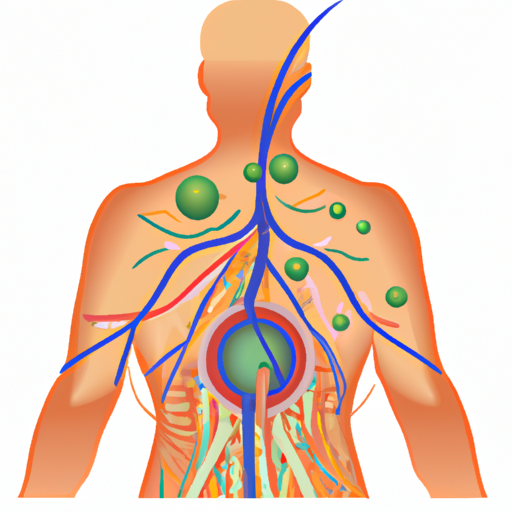Table of Contents
A robust immune system is essential for maintaining overall health and well-being in today’s fast-paced world. With the constant threats of germs, viruses, and diseases, it’s crucial to take proactive steps to boost one’s natural defenses. Fortunately, there are several natural and effective ways to strengthen the immune system, allowing individuals to fight off infections and stay healthy throughout the year.
By incorporating simple yet powerful lifestyle changes and natural remedies into daily routines, individuals can significantly enhance their immune function, reducing the risk of illness and promoting a longer, healthier life. What can you do to ensure your immune system is functioning optimally, protecting you from the constant barrage of germs and illnesses lurking around every corner?
Understanding the Immune System
Before we dive into the ways to boost your immune system, it’s essential to understand how it works. The immune system is a complex network of cells, tissues, and organs that work together to defend the body against infection and disease. It’s a remarkable system that can recognize and respond to many pathogens, from bacteria and viruses to fungi and parasites.
A Delicate Balance
The immune system is a delicate balance of different cell types, including white blood cells, such as neutrophils and lymphocytes, and proteins, like antibodies. When this balance is disrupted, the immune system can weaken, making you more susceptible to illness.
Lifestyle Changes to Boost Your Immune System
Fortunately, you can make many lifestyle changes to boost your immune system and reduce your risk of illness.
Get Enough Sleep
Sleep plays a critical role in immune function. During sleep, the body produces cytokines, which are proteins that help fight off infection and inflammation. When you don’t get enough sleep, the production of cytokines is disrupted, making you more vulnerable to illness. Aim for 7-9 hours of sleep per night to keep your immune system functioning at its best.
Exercise Regularly
Exercise is another essential component of a healthy immune system. Physical activity helps boost the circulation of white blood cells, the immune system’s first line of defense against infection. Aim for at least 30 minutes of moderate-intensity exercise per day.
Manage Stress
Chronic stress can weaken the immune system, making you more susceptible to illness. This is because stress triggers the production of cortisol, a hormone that suppresses the immune system. Find healthy ways to manage stress, such as meditation, yoga, or deep breathing exercises.
Eat a Balanced Diet
A diet rich in fruits, vegetables, whole grains, and lean proteins provides the essential nutrients and antioxidants to support immune function. Focus on whole, unprocessed foods and limit your intake of sugar and unhealthy fats.
Nutrients and Supplements to Boost Your Immune System
In addition to a balanced diet, specific nutrients and supplements can boost your immune system.
Vitamin C
Vitamin C is one of the most well-known immune-boosting nutrients. It plays a crucial role in producing white blood cells and helps to activate the immune system’s natural killer cells. Food sources of vitamin C include citrus fruits, bell peppers, and leafy greens.
Vitamin D
Vitamin D is another essential nutrient for immune function. It helps to regulate the immune system and prevent excessive inflammation. Spend time outdoors, take vitamin D supplements, or eat vitamin D-rich foods like fatty fish, egg yolks, and mushrooms.
Probiotics
Probiotics are beneficial bacteria that live in the gut and play a crucial role in immune function. They help to support the immune system by supporting the production of antibodies and activating immune cells. Find probiotics in fermented foods like yogurt, kefir, and sauerkraut, or take a probiotic supplement.
Omega-3 Fatty Acids
Omega-3 fatty acids, found in fatty fish, flaxseeds, and walnuts, help to reduce inflammation and support immune function.
Zinc
Zinc is an essential mineral that plays a critical role in immune function. It helps to support the production of white blood cells and activate the immune system’s natural killer cells. Find zinc in oysters, beef, chicken, and fortified cereals.
| Nutrient | Food Sources | Recommended Daily Intake |
|---|---|---|
| Vitamin C | Citrus fruits, bell peppers, leafy greens | 60-90 mg/day |
| Vitamin D | Fatty fish, egg yolks, mushrooms | 600-800 IU/day |
| Probiotics | Fermented foods, probiotic supplements | 1-2 billion CFU/day |
| Omega-3 Fatty Acids | Fatty fish, flaxseeds, walnuts | 250-500 mg/day |
| Zinc | Oysters, beef, chicken, fortified cereals | 11-12 mg/day |
Herbal Remedies to Boost Your Immune System
Certain herbs have been shown to have immunomodulatory effects, helping to boost the immune system and reduce the risk of illness.
Echinacea
Echinacea is a popular herb used for centuries to treat colds and flu. It helps to stimulate the immune system and reduce inflammation.
Garlic
Garlic contains allicin, which has antimicrobial properties that help fight infection.
Ginseng
Ginseng has been shown to have immunomodulatory effects, helping to boost the immune system and reduce the risk of illness.
Elderberry
Elderberry is a natural antiviral that helps to reduce the severity and duration of colds and flu.
Conclusion
Boosting your immune system naturally requires a combination of lifestyle changes, nutrient-dense foods, and targeted supplements. By making these changes, you can reduce your risk of illness and support your overall health and well-being. Remember, a robust immune system is your best defense against the constant barrage of germs and diseases surrounding us. Take control of your health and give your immune system the support it needs to thrive.


